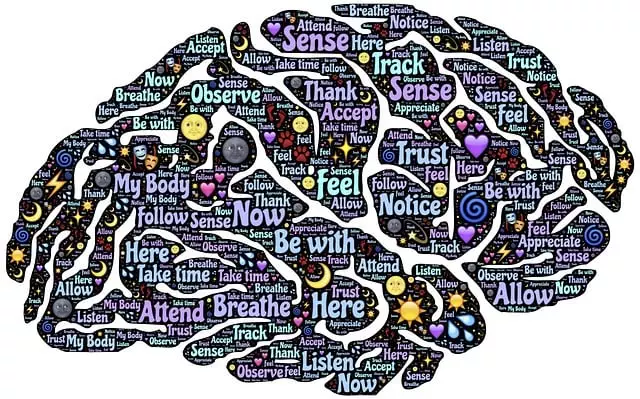Crisis Intervention Strategies: Kaiser’s Inpatient Mental Health Approach & Success in Greenwood Village
Kaiser's inpatient mental health services in Greenwood Village employ crisis intervention strat…….
In the intricate web of healthcare services, understanding the availability and quality of mental health treatments is paramount, especially for communities like Greenwood Village. This article delves into the question: “Does Kaiser offer inpatient mental health services in Greenwood Village?” By exploring various facets of this topic, we aim to provide a comprehensive insight into an essential aspect of modern healthcare. The following analysis will dissect the services, trends, challenges, and future prospects related to inpatient mental health within the context of Kaiser in Greenwood Village.
Definition:
Inpatient mental health care refers to the specialized treatment provided to individuals in a hospital or clinical setting, where they reside for an extended period, often ranging from several days to several weeks. This intensive form of therapy is tailored to address severe mental health disorders and offers around-the-clock monitoring and support.
Core Components:
Historical Context:
The concept of inpatient mental health care has evolved significantly over the years. Historically, psychiatric hospitals served as the primary treatment centers for severe mental illnesses. However, with advancements in psychiatry and a shift towards community-based care, the role and structure of these facilities have adapted. Today, inpatient programs are designed to offer intensive, specialized treatment while preparing individuals to transition back into their communities.
Significance:
Inpatient mental health services play a crucial role in managing complex conditions such as severe depression, anxiety disorders, psychotic breaks, and post-traumatic stress disorder (PTSD). They provide an environment free from external distractions, allowing patients to focus on their recovery with expert support. This level of care is particularly vital for individuals who require close monitoring during medication adjustments or those experiencing acute episodes that hinder their daily functioning.
International Influence:
The concept of inpatient mental health care has spread globally, reflecting a growing recognition of its importance in healthcare systems worldwide. Countries like the United Kingdom, Australia, and various European nations have well-established inpatient programs similar to what Kaiser might offer in Greenwood Village.
Trends Shaping Inpatient Mental Health:
Regional Variations:
Different regions worldwide have varying levels of access and quality in inpatient mental health services due to resource allocation, cultural norms, and healthcare policies. For instance:
Market Dynamics:
The global mental health market, including inpatient services, has experienced steady growth due to increasing awareness and the rising prevalence of mental disorders. According to a report by Grand View Research, the global mental health market size was valued at USD 374.6 billion in 2021 and is projected to expand at a CAGR of 8.9% from 2022 to 2030. This growth indicates a growing demand for specialized mental health services, including inpatient care.
Investment Patterns:
Private healthcare providers, insurance companies, and government agencies are significant investors in mental health infrastructure, including inpatient facilities. In the United States, for instance, the Affordable Care Act (ACA) has played a role in expanding access to mental health services, influencing investment decisions in this sector.
Economic Impact:
Inpatient mental health care contributes to economic systems through direct and indirect effects:
Impact on Inpatient Mental Health:
Technology has revolutionized inpatient mental health care in several ways:
Future Potential:
The future holds immense potential for technological innovations in inpatient mental health:
Governing Bodies and Frameworks:
Key policies and regulations shape the landscape of inpatient mental health care:
Influence on Development:
These policies and regulations:
Main Issues Faced:
Despite its benefits, inpatient mental health care is not without challenges:
Proposed Solutions:
Successful Applications:
Case Study 1: Kaiser Permanente’s Inpatient Mental Health Program (US)
Kaiser Permanente, a large healthcare provider in the US, offers comprehensive inpatient mental health services at its facilities across the nation. Their programs focus on evidence-based treatments and patient-centered care. For instance, the Kaiser Permanente Southern California (KP SC) campus in Bellflower provides specialized units for adult and adolescent patients with severe mental illnesses. KP SC’s approach includes:
Case Study 2: The Camden Center for Behavioral Health (US)
Camden Center is a renowned psychiatric hospital in Philadelphia that provides intensive inpatient care. They have gained recognition for their holistic treatment approach, which includes:
Lessons Learned:
Emerging Trends:
Strategic Considerations:
Inpatient mental health care, including what Kaiser might offer in Greenwood Village, is a critical component of modern healthcare infrastructure. Its impact on severe mental illness management is profound, providing intensive treatment and support when needed most. By addressing challenges, leveraging technological advancements, and adhering to policy frameworks, the future of inpatient mental health holds promise for improved accessibility, quality, and patient outcomes.
Q: What conditions require inpatient mental health care?
A: Inpatient mental health services are tailored for individuals with severe mental disorders such as depression, anxiety, psychotic disorders, PTSD, bipolar disorder, and substance use disorders requiring intensive treatment.
Q: How do I know if I or a loved one needs inpatient care?
A: If you or someone else experiences acute symptoms like suicidal thoughts, severe self-harming behaviors, aggressive impulsivity, or severe disorganization that interferes with daily functioning, it may be indicative of a need for inpatient care. Consulting a healthcare professional is crucial for an accurate assessment.
Q: Are there any alternatives to inpatient mental health treatment?
A: Yes, outpatient therapy, community-based programs, and telehealth services are alternative options. These approaches cater to less severe cases or individuals who prefer more flexibility in their treatment plans. However, for complex conditions requiring intensive care, inpatient facilities offer the most appropriate setting.
Q: How can technology improve mental health care?
A: Technology enhances mental health care through digital therapeutic interventions, telemedicine, mHealth apps, and AI-powered tools that personalize treatments, improve access, and facilitate ongoing support between clinical sessions.
Q: What role do policies and regulations play in inpatient mental health?
A: Policies and regulations ensure quality, safety, and accessibility of inpatient mental health services. They guide healthcare providers, influence insurance coverage, and promote equitable access to care, ultimately enhancing patient outcomes.

Mental Health Crisis Hotlines provide 24/7 immediate support, connecting callers to resources like K…….

Designing effective stress management workshops involves balancing structured learning with experien…….

Mindfulness meditation, an ancient Eastern philosophy, is recognized by modern healthcare for its po…….

Understanding your mental wellness needs is crucial for developing a personalized self-care routine……..

Before launching a mental wellness podcast, conduct thorough research to identify target listeners (…….